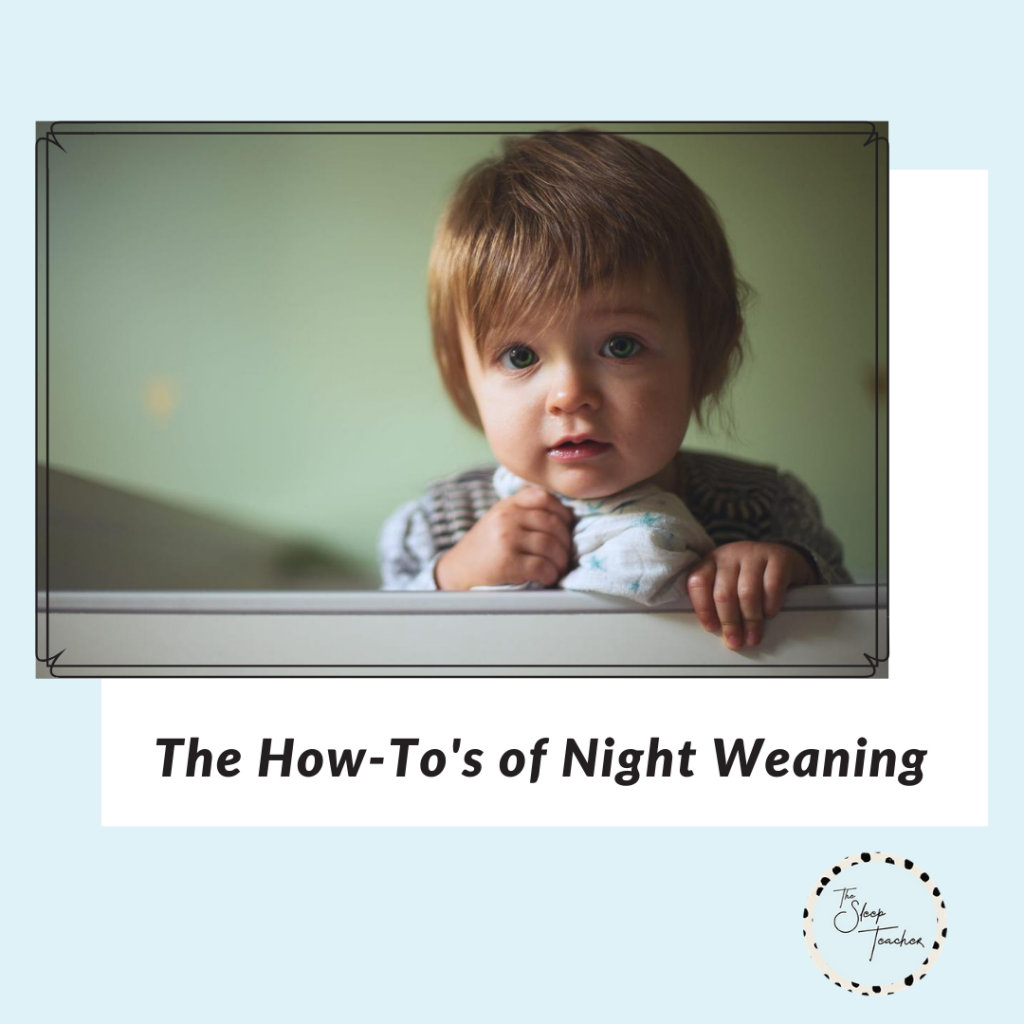You can wonder when it is the right time to start night weaning but the truth is that the right time begins when you are ready for it. Night weaning isn't something you decide on based someone commenting that you should begin night weaning your 6 month old, 1 year old or 2 year old.
When is the right time to start night weaning and how do I night wean?

It is often in the darkness of the night, when the world is quiet, sleeping and the lights are dim that the beauty of the one on one time with night feedings really shines bright.
It is not until after 6-7 months of night feeding that the middle of the night wake ups are dreaded and that a full nights sleep is desired so deeply. It can be one of the biggest realisations for a new mum who has been just surviving each night that perhaps night weaning your baby is the one thing that could stop night wakings all together. You know you have reached this point when your google search history shows searches like "When to start night weaning" or "Night weaning 10 months old", "Night weaning bottle fed baby", "How to night wean and stop overnight feeds" or the number one (hands up if you've searched this one before) but "What age can baby sleep through the night?".
The hardest part to parenthood is finding the right answers and when it comes to night weaning there is no one size fits all.
There is no set age and no set weight despite popular assumptions but there are signs that your baby can display and these signs do not mean drop all night feeds but instead reduce the number on offer (e.g. don't feed each wake straight away) and then as you reduce the feeds on offer it will become easier to completely night wean when both you and baby are truly ready.
These are the signs your baby might show when ready to night wean:
- Your baby is sleeping through the night on occasion
- Your little one has the ability to self settle and resettle without a feed
- Your baby has a healthy weight gain
- Baby is having recommended number of milk feeds for age during the day time and quantity
- Your little one is eating minimum 2 serves of solids including a serve of protein daily.
- Baby is waking frequently after an overnight need (indicates this is a sleep association and not a hunger sign)
- Your little one is showing no interest in their morning milk feed on daily wake up.

Save a copy of our checklist for night weaning readiness to refer to or share with a friend who may be considering night weaning.
Night weaning doesn't mean baby will sleep through the night.
It is important to be mindful when considering night weaning that you aren't just doing it purposefully to sleep through the night because unfortunately it doesn't always mean baby will sleep through. Babies still waking multiple times overnight to feed do so because of a strong feed to sleep association. Night weaning will be more difficult for these babies. If your little one is using the feeding to fall asleep and resettle method then working on teaching self-settling methods first often helps to assist in reducing the night wakes and then night weaning can happen organically afterwards for some babies and parents.
Prepare your night weaning process by putting a plan in place for overnight wakes that everyone is aware of.
Having a plan in place for night wakes and communicating it with your partner helps to keep you accountable, feel confident and ensure you receive the support you need to be consistent. It is important you are open in your communications with your household when introducing changes so that they are aware what you are doing and can be the support you may need at that time to ensure you are consistent when night weaning.
How do I night wean my baby?
If your baby meets the checklist suitability to night weaning then it is time we set some rules to begin night weaning. Ensure these are what you are comfortable with but for a baby feeding 3-4 times a night over 6 months of age we can try to reduce the quantity of feeds.
- Reduce overnight feeds to no more than 2 feeds with no less than 4 hours apart.
- Keep first feed no earlier than 11pm and second feed no earlier than 3am.
- If baby wakes overnight between those set feeding hours then you do not assume hunger and instead assist your baby to resettle with one of our settling techniques (settling techniques are available from our sleep programs here).
- Once consistent with above we can reduce early a.m feed by restricting consumption quantity from breast/bottle.
- If waking habitually still utilise the same settling method you've adopted to be consistent
- When down to 1 feed a night begin to push this back later by utilising settling techniques over assuming hunger first.


